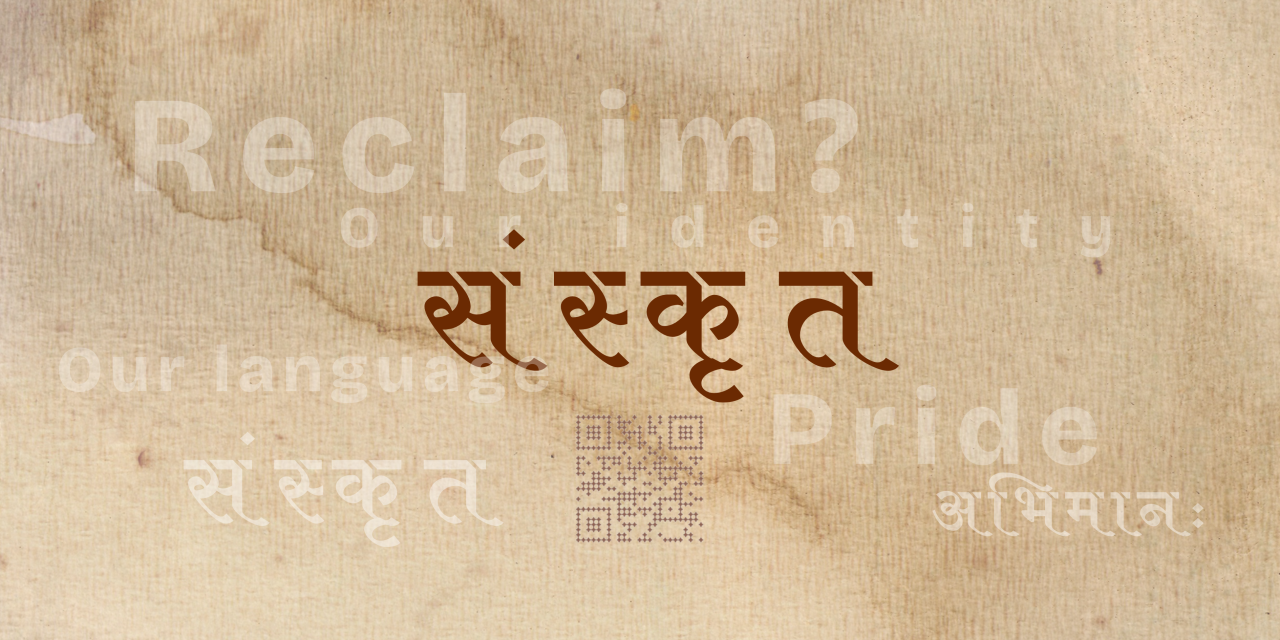The Forgotten Pride: Why Indians Should Reclaim Sanskrit

Why have we, as Indians, forgotten the language that shaped our identity? Imagine a treasure trove of wisdom, beauty, and power that is uniquely yours—but you’ve forgotten how to access it. Sanskrit, the language that once flourished in our land, is this treasure, and for many of us, it has become a distant memory. But why? Why have we allowed this pillar of our heritage to fade into the background? And more importantly, is it time to reclaim it?
The Taittiriya Upanishad reminds us, “A person’s knowledge is limitless as long as he continues to learn.” This wisdom couldn’t be more relevant today. As the world rushes forward in pursuit of the new, it’s worth remembering that learning is not just about adopting modernity—it’s about rediscovering what we’ve left behind. Sanskrit isn’t just a language of the past; it’s a wellspring of knowledge that remains deeply relevant in our lives, if only we choose to reconnect with it.
But here’s where it gets controversial. Some say that Sanskrit is irrelevant in modern India. They argue that in a country driven by progress, technology, and innovation, there’s no room for an ancient language. And yet, this narrative is rapidly changing. Sanskrit is making a surprising comeback, not just in classrooms or academic circles, but in global fashion, wellness, and even tech. The world outside of India is beginning to appreciate the depth and beauty of Sanskrit—so why aren’t more of us here at home doing the same?
Consider this: In the West, Sanskrit phrases are emblazoned on everything from yoga mats to T-shirts, and tech giants are exploring the linguistic possibilities of Sanskrit for AI and computational languages. People worldwide are tapping into the ancient wisdom of Sanskrit for meditation, mindfulness, and even modern branding. So, if Sanskrit is so irrelevant, why is it captivating the world’s attention? Could it be that we, as Indians, have overlooked something that the rest of the world is beginning to see? Are we missing out on reclaiming a part of our heritage that is far more powerful than we realize?
The truth is, Sanskrit isn’t just a relic of history—it’s a living language that has shaped the very foundations of Indian culture, philosophy, and spirituality. From the Vedas to the Upanishads, Sanskrit has been the vessel for some of the most profound thoughts ever conceived. And these teachings aren’t locked in the past—they’re waiting to be rediscovered, to inspire and guide us in the present.
So why should we, as Indians, reclaim Sanskrit? It’s not just about pride—it’s about ownership. Sanskrit is ours. It is the language of our ancestors, the language that holds the keys to our spiritual and intellectual heritage. Reclaiming Sanskrit is about reconnecting with the wisdom that has always been within us, a wisdom that can elevate our lives in ways that modern languages and ideas simply cannot.
But there’s a larger question at play here: Are we ready to reclaim what is rightfully ours? Are we willing to embrace a part of our identity that has been sidelined for far too long? Or will we continue to let the world rediscover the treasures of Sanskrit while we stand on the sidelines?
The resurgence of Sanskrit in global culture is a wake-up call. It’s time for us to stop viewing Sanskrit as a relic of the past and start seeing it for what it truly is: a living, breathing part of our cultural identity. It’s time to reclaim our heritage, to wear it proudly, and to allow it to guide us into the future.
So, ask yourself: Are you ready to rediscover the language that has shaped our civilization? Are you prepared to reclaim the pride that comes with owning something so uniquely Indian? Or will you continue to let others rediscover it for you?





